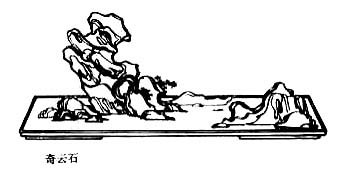詩
經
Shi Jing 
 – Le Canon des Poèmes
– Le Canon des Poèmes
Le plus ancien recueil connu de poésie chinoise, plus de trois cents chansons, odes et hymnes. Tr. Legge (en) et Granet (fr, incomplète).
Shijing IV. 3. (291)
Very sharp are the excellent shares,
With which they set to work on the south-lying acres.
They sow their different kinds of grain,
Each seed containing a germ of life.
There are those who come to see them,
With their baskets round and square,
Containing the provision of millet.
With their light splint hats on their heads,
They ply their hoes on the ground,
Clearing away the smart-weed on the dry land and wet.
These weeds being decayed,
The millets grow luxuriantly.
They fall rustling before the reapers.
And [the sheaves] are set up solidly,
High as a wall,
United together like the teeth of a comb ;
And the hundred houses are opened [to receive the grain].
Those hundred houses being full,
The wives and children have a feeling of repose.
[Now] we kill this black-muzzled tawny bull,
With his crooked horns,
To imitate and hand down,
To land down [the observances of] our ancestors.
Legge 291

Le Canon des Poèmes – Shi Jing IV. 3. (291) – Chinois on/off – Français/English
Alias Shijing, Shi Jing, Book of Odes, Book of Songs, Classic of Odes, Classic of
Poetry, Livre des Odes, Canon des Poèmes.
Le Canon des Poèmes, Les Entretiens, La Grande Étude, Le Juste Milieu, Les Trois Caractères, Le Livre des Mutations, De la Voie et la Vertu, 300 poèmes Tang, L'Art de la guerre, Trente-six stratagèmes
Bienvenue, aide, notes, introduction, table.
Index – Contact – Haut de page
